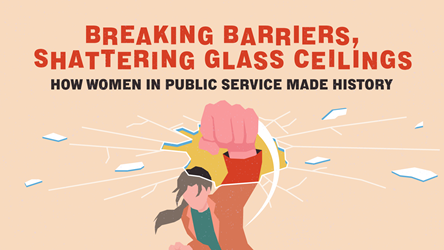Mindfulness: A Key Element To Effective Leadership

Leadership books, seminars and workshops may give a plethora of advice on leading effectively. But they all agree that “vision” is a key component of leadership.
Warren Bennis, a pioneer in the field of leadership studies, offers a useful definition: “Leadership is the capacity to translate vision into reality.” This definition captures all acts of leadership, whether they are instantaneous, or long-term strategic endeavours of a CEO or a prime minister.
An act of leadership can take place in a few seconds or may be a planned reign. For example, it is an act of leadership if a woman sees a child sitting in the path of an oncoming car and makes a split-second decision to save the child from danger. Her vision may simply be to run out, scoop the child up, and run to the other side of the road. In that short span of time, she has taken the lead by creating a vision, and translating it into reality by saving the child.
Along with vision, mindfulness is a key element of effective leadership.
The woman in the example above would have had to assess the chances of reaching the child without killing herself before acting.
Just what is mindfulness and how does one achieve it? Mindfulness is the act of noticing new things or processes. It is being actively alert in the immediate moment and taking in and accounting for all of one’s surroundings.
Mindfulness is distinguished from mindlessness. When a person is mindless, he or she is processing information according to preconceived notions.
A professor of mine used to say, “Most people would rather you hear their story than grant their wish.” I was reminded of that quote when I read about the mindful behaviour of tax officer Mohamad Fauzi Bin Mohamad in the last issue of Challenge (Sep/Oct 2012). Confronted with an irate taxpayer, rather than allowing himself to be angered, he listened to the complaint, empathised, and patiently explained why the policy required the taxpayer to pay a late fee. She paid the penalty. Mr Fauzi clearly understood that a mindful public officer owes professionalism to the disgruntled as well as to the delighted.
There are many ways to develop mindfulness, but allow me to suggest a technique that you can use with your colleagues as well as in the field. Public officers in the US often rue open meetings with the public because they frequently turn into gripe sessions.

Singaporean public service professionals have told me the same thing.
One approach has altered the tone in many of these sessions. Before citizen complaints begin, the public officer might say, “I don’t want to assume anything on your behalf and I want to fully understand your concerns so that they are properly addressed. Please help me. When you raise an issue…I will repeat my understanding of your concern back to you and I would ask you to correct any misunderstandings on my part.” This begins a collaborative process between the citizens and the public officers.
All societies teach the golden rule of reciprocity: “Do unto others as you would have done to you.” One of the exciting, as well as challenging, aspects of public service is that one never knows what one is going to be confronted with next. Being as mindful as public officer Fauzi – remembering that respectfulness is likely to beget respectfulness in return – is likely to garner the most positive outcomes.
Edd Brown is the founder of VeritasRISING International, a training and consulting company focusing on sales and leadership issues.
- POSTED ON
Nov 16, 2012









